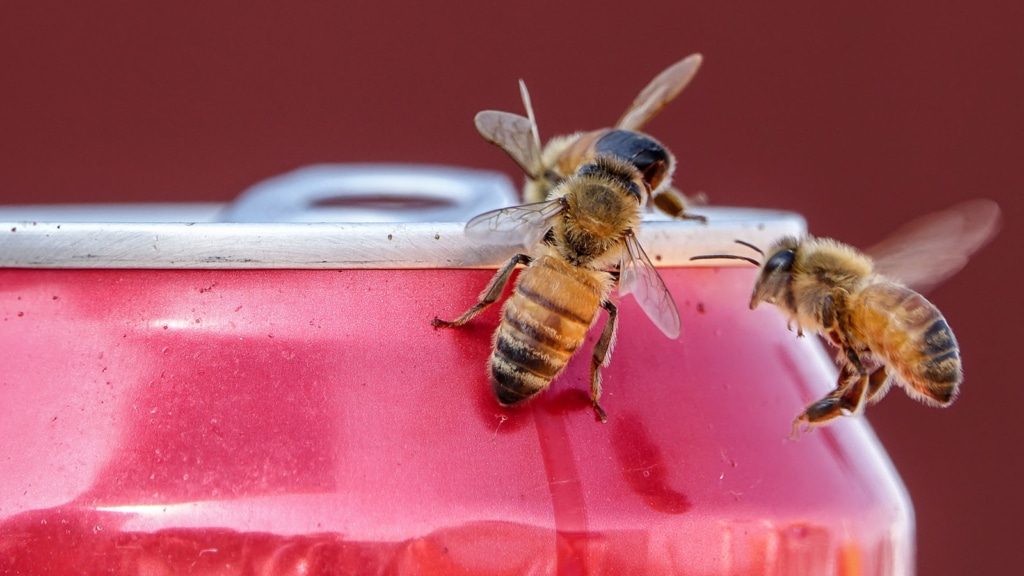 go back
go back
 go back
go back
Am I allergic to bees?
We love this season for many reasons – parties, pools, and outdoor fun. However, one group of guests keeps us on edge this time of year – bees and other stinging insects.
With the warmer weather and moisture from the previous spring months, summertime requires extra precaution if you have a bee allergy or are allergic to other stinging insects.
Unless you’ve been tested for a stinging insect or bee allergy or have been stung by one, you most likely don’t know if you’re allergic or not. Luckily, we’ve got the full scoop on what a bee allergy or allergy to any stinging insect looks like.
Symptoms of a Bee or Other Stinging Insect Allergy
Signs and symptoms are unique to each person. If you get stung by a bee before confirming whether you have a bee allergy, you should know that there are symptoms to be expected, including itching, redness, and swelling around the site of the sting. Typically, it hurts for a few hours and then feels better over time.
An allergic reaction, on the other hand, involves non-local reactions, including:
- Itching, hives, or swelling over large portions of your body, not just the site of the sting
- Swelling of the face, throat, or tongue
- Difficulty breathing
- Dizziness
- Stomach cramps
- Nausea or diarrhea
- Loss of consciousness
What to do After an Insect Sting
If you get stung and already know that you have an insect or bee allergy, use an epinephrine shot (Auvi-Q or Epi-Pen). Even if the shot provides relief, you will still need medical attention.
Insect stings can still be uncomfortable, even if you don’t have a bee allergy. Here are some tips for finding relief:
- Ice the sting off and on (10 minutes on, 10 minutes off), but don’t put ice directly on the skin.
- As with any other injury, raise the area of the sting to reduce the swelling.
- To make you more comfortable, take an antihistamine and use a hydrocortisone cream to ease swelling and itching.
- The redness and swelling should go away within 5-10 days.

How to Prevent Bee and Insect Stings
The best way to avoid bee and other insect stings is to avoid bees and other insects all together. Here are some ways to reduce your chances of getting stung:
- Don’t wear sandals on the grass, and don’t go barefoot. Try to wear closed-toed shoes.
- If a bee or other stinging insect approaches you, gently brush them away. You can also wait for it to wander on its own.
- Avoid drinking from open soda cans. Bees love sugary drinks.
- Having a party? Keep tight lids on your food and any garbage cans.
- If you’re doing yard work, wear socks, shoes, and gloves. Also, wear long sleeves and pants even if it’s hot outside. You never know where a bee or other stinging insect might be hiding.
- When you plan to be outside, avoid wearing perfume. It attracts bugs, especially bees.
- Make sure all open doors and windows have screens in them.
- Keep car windows closed.
- Avoid wearing bright colors outside. They can attract bees, too!
Treating a Bee Sting Allergy
With immunotherapy, we can give you extremely small doses of the allergen. While your allergy won’t completely go away, this therapy will help make your reaction less severe if you get stung again. Medications such as antihistamines address symptoms alone, whereas immunotherapy gets to the root cause. Immunotherapy treatment for allergies can be administered orally, sublingually, or via an injection.
Also, if you know you have an insect allergy like this, consider wearing a medical alert necklace or bracelet to alert medical personnel to your allergy in case you get stung.

Medically Reviewed By: John Seyerle, MD
Reviewed on: July 1, 2022
Our team of writers, editors, and medical experts goes over each article carefully to make sure the information is correct and that only reliable sources are used.
We regularly check to see if the info in this article matches up with the latest scientific research and expert advice so that we can give you the most up-to-date information. See list of trusted resources here.
HOW TO KNOW IF YOU HAVE AN ALLERGY
If you’re unsure if you have a bee allergy or other stinging insect allergy and don’t want to wait until you get stung to find out, contact us for an appointment. We can assess your situation and determine if you have an allergy.
Make an Appointment